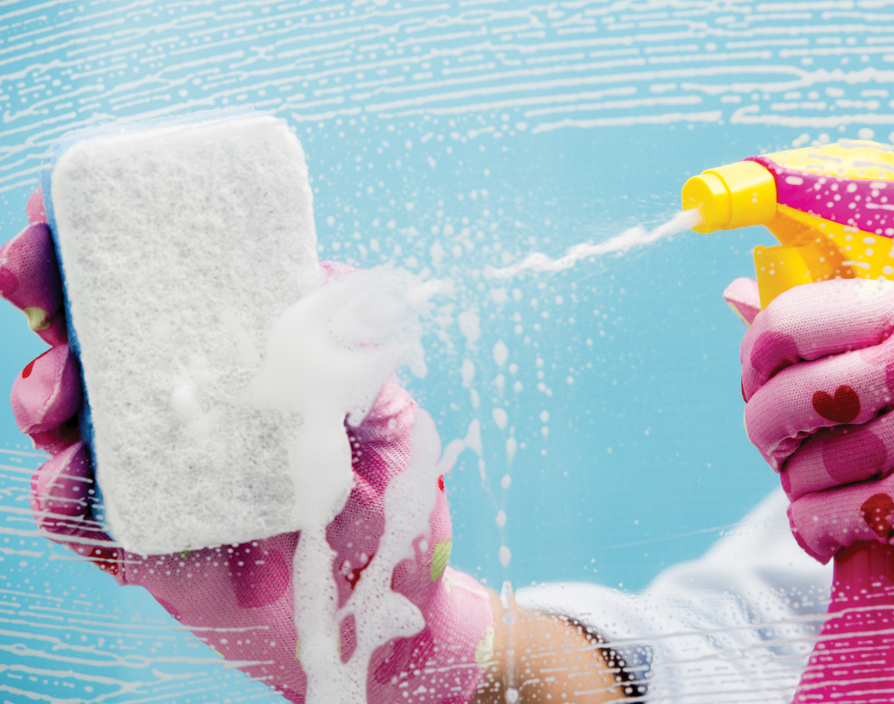To say that cleaning businesses have become a force to be reckoned with almost seems like an understatement. Few sectors can boast that they contributed over £24bn to the British economy in 2015 but, according to the British Cleaning Council, the cleaning industry is one of them. And franchises specialising in tidying up people’s houses are now reaping the benefits of the sector’s growth.
However, no industry can rise to prominence if the conditions aren’t right. Fortunately, the market was ripe for disruption back in the 1990s. “A lot of things changed back then,” says Tim Harris, chief executive of Ovenclean, the oven-cleaning franchise. “For starters, people had become very cash-rich but time-poor.” While women might have once been the primary caretakers of British households, this began to change in the second part of the 20th century as more of them joined the workforce. In 1971, about half of female Brits were working, according to the Office of National Statistics; today, the proportion of women in employment has jumped to three-quarters. With more people working, it left families with more money to spend but less time to do things like cooking and making their homes spotless. “As a result a lot of service industries sprang up,” says Harris. “It’s the same thing that saw Domino’s Pizza become popular. And given that cleaning is consistently ranked as Britain’s most hated chore, it’s not surprising that people were quite open to paying someone else to do it.”
Having a solid customer base certainly does wonders for every sector but it wasn’t the only factor that laid the foundation for the residential-cleaning industry’s growth in the 1990s. About the same time, business leaders became aware of how franchising was changing the market across the pond. “We’re always about ten years behind what happens in America,” says Catriona Berry, operations manager at Merry Maids, the home-cleaning franchise. Modern franchising in the US originally took off in the 1950s and by the 1980s it was growing like never before. In 1988 alone, 27,273 new franchised units opened. That’s roughly one every 20 minutes. And as the franchised market grew, people in Blighty began to take notice. “People saw how American businesses worked in the franchising sectors and saw it as an opportunity to get their brands out there,” says Berry. “Many one-man bands that would’ve never been able to grow their companies by themselves realised that it would be much easier having 50 or 60 ambassadors helping them.”
The cleaning sector was particularly well-placed to take advantage of the model. “More and more people want to go into businesses by themselves,” says Berry. “And cleaning franchises provide low-level entry opportunities for low investments.” Another benefit is that franchising minimises the risk of failure inherent in launching a cleaning business alone. “People want a structure instead of having to learn everything from HR to health and safety by themselves,” says Berry. “And buying a franchise offers that because franchisors have already done all the work. It’s a proven model you can simply pick up, run and earn a living with.”
And once established, house-cleaning franchises have proven particularly resistant to changing circumstances. “Everyone ran for cover when the economy took a dive in 2008,” says Freddie Rayner, founder of Time For You, the residential-cleaning franchise. “But I didn’t. Instead we just ramped up our marketing.” And that bet certainly paid off: both Time For You and other cleaning franchises noticed that the recession enabled them to grow their business. “The pressure was on and more people had to go to work, which left us with more clients,” says Rayner. “And surprisingly, people who were living in more modest houses also began using our services. That’s because the people who would’ve normally bought a new house found themselves unable to get a mortgage. Instead, they spent money on things like a new TV and a cleaner instead.”

Eric Johansson
As web editor and resident Viking, Johansson ensures Elite Franchise is filled with engaging and eclectic entrepreneurial stories. While one of our most prolific franchise writers, he has sharpened his editorial teeth by writing about entertainment and fitness. Follow him on Twitter at @EricJohanssonLJ to catch up with his stream of consciousness.

Eric Johansson
As web editor and resident Viking, Johansson ensures Elite Franchise is filled with engaging and eclectic entrepreneurial stories. While one of our most prolific franchise writers, he has sharpened his editorial teeth by writing about entertainment and fitness. Follow him on Twitter at @EricJohanssonLJ to catch up with his stream of consciousness.


































